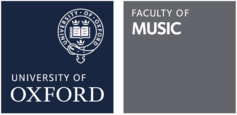Dr Oliver Chandler
Oliver Chandler is Director of Studies in Music at Hertford and Keble Colleges, University of Oxford, and an academic professor at the Royal College of Music, where he leads the music analysis course and teaches musicianship and history. He previously held posts at Anglia Ruskin, King’s College London, Goldsmiths, and Royal Holloway.
In 2024 he received the Adele Katz Early Career Researcher Award from the Society for Music Analysis, whose committee described him as “an outstandingly talented early-career theorist and analyst with the potential to make a truly significant and lasting contribution to our discipline.” His publications include Return to Riemann: Tonal Function and Chromatic Music (Routledge, 2024, with J. P. E. Harper-Scott); Born by the Thames: Stephen Dodgson, a Centenary Celebration (de la Porte, 2024, co-edited with Thomas Hyde), which received a four-star review in BBC Music Magazine; and A Twelve-Tone Repertory for Guitar: Julian Bream and the British Serialists, 1956–1983 (GFA Monographs, 2023). His articles have appeared in Music & Letters, Music Analysis, Music Theory and Analysis, and Music Theory Online.
He is Critical Forum Editor at Music Analysis and Book and Score Editor at Soundboard Scholar, the leading journal of guitar studies. A guitarist by training, he was awarded Trinity Laban’s guitar departmental prize in 2015 and now directs the guitar orchestra at the Royal Greenwich Guitar Festival. He also contributes programme notes for the Julian Bream Trust.
Books
- Return to Riemann: Tonal Function and Chromatic Music, with J. P. E. Harper-Scott (London: RMA monograph series, 2024).
- Born by the Thames: Stephen Dodgson, a Centenary Celebration, ed. with Thomas Hyde (de la Porte, 2024).
- A Twelve–Tone Repertory for Guitar: Julian Bream and the British Serialists, 1956–1983 (Guitar Foundation of America Refereed Monograph Series, Volume 4 (2023), eds Nathan Cornelius & Jonathan Leathwood)
Journal Articles
- ‘Phasic Dissonance, Timbral Contrast: Analyzing Twentieth-Century Guitar Harmonies with Discrete Fourier Transform’, with Isabella Thorneycroft, Music Analysis 43/1 (2024): 77–113
- ‘Reginald Smith Brindle’s Concept of Tonal–Atonal Equilibrium in Theory and Practice’, Soundboard Scholar 7 (2021): 1–24
- ‘Tonal Dodecaphony and Sentential Form: Extracts from Humphrey Searle’s Symphony No. 2, Op. 33’, Music Theory & Analysis 8/2 (2021): 43–53
- ‘Structural Dissonance Reimagined: the Finale of Elgar’s Violin Sonata, Op. 82’, Music & Letters 102/2 (2021): 294–316
- ‘“Octatonic” voice leading and diatonic function in the Allegro molto from Elgar’s String Quartet in E minor, op. 83’, Music Theory Online 26/1 (2020) [8,500 words]
- ‘Diatonic Illusions and Chromatic Waterwheels: Edward Elgar’s Concept of Tonality’, Journal of the Society for Musicology in Ireland, 15/1 (2020): 3–29
- ‘A Diminished–Seventh Bassbrechung: Tonal Ambiguity and the Prolongation of Function in Edward Elgar’s String Quartet, 1st movement’, GAMUT: Online Journal of the Music–Theory Society of the Mid–Atlantic 9/1 (2020): 1–29
Book Chapters
- ‘Chapter 17: Eclectic Unities? Malcolm Arnold’s “Symphonic Thinking”’, The Symphony in Britain and Ireland Since 1900, ed. Nicholas Jones (Cambridge: Cambridge University Press, 5,500 words [commissioned; submitted third round of edits to the editor; anticipated publication July 2025])
- ‘Chapter 3: Tonality in Waltraute’s Plaint’ (co-authored with J. P. E. Harper-Scott) in Wagner Studies, ed. Steven Vande Moortele (Cambridge: Cambridge University Press, [commissioned; in press; anticipated publication Winter 2024, 7,500 words])
- ‘Tonality and (the) “Beyond”: Elgar’s Gerontius and Piacevole’ in Art, Music, and Mysticism in the Long Nineteenth Century, eds. Michelle Foot and Corrinne Chong (Routledge July 2024): 213–230.
- ‘Stephen Dodgson’s Neo–Classical Language’, in Born By The Thames: Stephen Dodgson, A Centenary Celebration (de la Porte publishing, March 2024): 209–222
Reviews
Discrete Fourier Transform, PC Set Theory, Schenkerian Analysis, (neo-)Riemannian Theory, British Music, Guitar Studies, Schema Theory, the new Formenlehre




